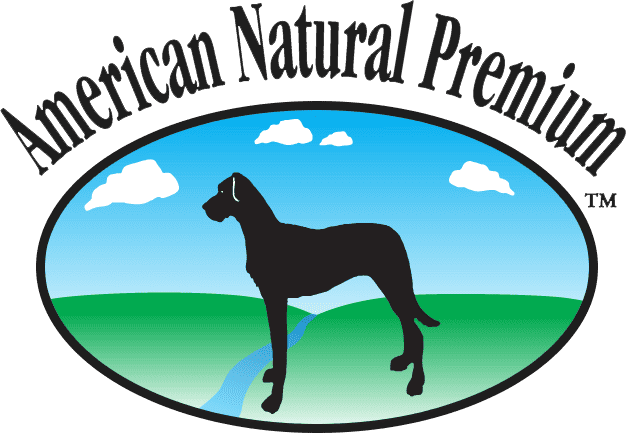Rottweiler Allergies: A Comprehensive Guide

Rottweilers, with their imposing presence and unwavering loyalty, are among the most recognizable and beloved working dog breeds. These powerful guardians combine strength with surprising sensitivity, and despite their robust appearance, Rottweilers are prone to various allergies that can significantly compromise their quality of life. Understanding how allergies affect this breed and identifying the best dog food for Rottweiler allergies is essential for maintaining their health, comfort, and working ability.
Understanding Allergy Susceptibility in Rottweilers
Rottweilers possess several characteristics that make them vulnerable to allergic conditions. While bred for strength, endurance, and protection work, the breed has genetic predispositions to immune-mediated conditions that can manifest as allergies. Their short, dense double coat, while protective in many ways, provides limited barrier against environmental allergens and makes skin reactions highly visible once they occur.
The breed’s substantial size and muscular build mean that when allergies strike, the inflammation and discomfort affect a large body surface area, potentially causing more severe symptoms than in smaller breeds. Additionally, Rottweilers’ working heritage and high food drive can complicate allergy management, as food motivation makes dietary restrictions particularly challenging for this treat-oriented breed.
Modern breeding practices focusing on temperament and appearance have inadvertently concentrated allergy-prone genetics within some bloodlines. While not all Rottweilers develop allergies, those that do often experience significant symptoms requiring comprehensive management strategies.
Common Allergy Types in Rottweilers
Food Allergies: Rottweilers frequently develop sensitivities to common proteins including chicken, beef, and dairy products. Grains such as wheat, corn, and soy are also common triggers. Food allergies in Rottweilers typically present through skin manifestations including intense itching, though some dogs also experience gastrointestinal symptoms.
Environmental Allergies (Atopy): Seasonal allergies to pollens, grasses, trees, mold spores, and weeds affect many Rottweilers. These dogs often show predictable patterns of symptoms corresponding to allergen seasons in their geographic area.
Contact Allergies: Some Rottweilers react to substances touching their skin directly, including certain cleaning products, fabrics, lawn treatments, or grooming products.
Flea Allergy Dermatitis: Even minimal flea exposure can trigger severe allergic responses in sensitive Rottweilers, with single bites causing weeks of intense itching and skin damage.
Recognizing Allergy Symptoms in Rottweilers
Identifying allergy symptoms early allows for prompt intervention and management:
Skin Problems: Persistent scratching, biting, and licking, particularly affecting the paws, face, ears, armpits, groin, and belly, indicate allergic responses. Rottweilers’ short coat makes skin inflammation obvious, with affected areas appearing bright red or developing hot spots – localized areas of intense, moist inflammation.
Chronic Ear Infections: Recurring ear problems with redness, dark discharge, foul odors, and frequent head shaking commonly accompany allergies in Rottweilers. Their floppy ears create warm, moist environments that become problematic when allergies compromise immune defenses.
Paw Irritation: Excessive paw licking and chewing is extremely common in allergic Rottweilers. The constant moisture between toes creates perfect conditions for yeast infections, adding secondary problems to primary allergies. Brown staining on paws from saliva indicates chronic licking.
Facial Rubbing: Rottweilers often rub their faces against furniture, carpets, or their paws to relieve itching around the muzzle and eyes.
Gastrointestinal Symptoms: Food-allergic Rottweilers may experience chronic diarrhea, vomiting, excessive gas, or irregular bowel movements alongside or instead of skin symptoms.
Respiratory Issues: Some allergic Rottweilers develop sneezing, reverse sneezing, watery eyes, or nasal discharge, particularly with environmental allergies.
Behavioral Changes: The constant discomfort from allergies can make normally calm, confident Rottweilers become irritable, restless, or sleep-disturbed. Some dogs lose interest in activities or become less responsive to training.
Secondary Infections: Damaged skin from scratching becomes vulnerable to bacterial or yeast infections, causing pustules, crusting, hair loss, greasy skin, and distinctive foul odors.
Diagnosing Allergies in Rottweilers
Accurate diagnosis is crucial for effective management:
Food Elimination Trials: For suspected food allergies, strict elimination diets using novel proteins last 8-12 weeks with absolutely no other foods, treats, or flavored items. This systematic approach identifies food triggers definitively. Rottweilers’ food motivation can make this challenging, but their trainability helps maintain dietary compliance.
Intradermal Allergy Testing: For environmental allergies, skin testing identifies specific allergens by injecting small amounts under the skin and monitoring reactions.
Blood Allergy Testing: Serum testing measures antibodies to various allergens, though this method is generally less reliable than intradermal testing.
Comprehensive Veterinary Examination: Thorough workups rule out other conditions mimicking allergies, such as mange, hypothyroidism, or autoimmune diseases to which Rottweilers may be predisposed.
Symptom Pattern Analysis: Tracking when symptoms appear, worsen, or improve helps differentiate between seasonal environmental allergies and year-round food sensitivities.
Nutritional Management: Finding the Best Dog Food for Rottweiler Allergies
Selecting the best dog food for Rottweiler allergies requires understanding which proteins and ingredients trigger your dog’s specific sensitivities:
Novel Protein Sources: The foundation of managing food allergies involves switching to proteins your Rottweiler hasn’t regularly consumed. American Natural Premium’s Lamb Meal & Rice Recipe provides high-quality lamb protein suitable for Rottweilers with chicken or beef allergies, delivering the nutrition these large, muscular dogs need.
Fish-Based Formulas: Fish proteins offer exceptional digestibility combined with anti-inflammatory omega-3 fatty acids that actively reduce allergic inflammation. American Natural Premium’s Fish Recipe with Zucchini & Carrots provides these therapeutic benefits while meeting the caloric needs of active Rottweilers.
Duck as an Alternative: For Rottweilers requiring truly novel proteins, American Natural Premium’s Duck Recipe with Butternut Squash offers a unique protein source with excellent palatability that many allergic Rottweilers tolerate successfully.
Limited Ingredient Formulas: The best dog food for Rottweiler allergies contains minimal ingredients, reducing exposure to multiple potential allergens while making trigger identification easier if symptoms persist. American Natural Premium’s Sensitive Care provides this simplified approach with digestive support through probiotics.
Large Breed Considerations: When identifying the best dog food for Rottweiler allergies, remember these dogs need formulations supporting their large frame and joint health. Look for appropriate calcium and phosphorus ratios alongside allergy-friendly proteins.
Medical Management Options
Antihistamines: First-line treatments for mild allergies include over-the-counter antihistamines like Benadryl or prescription options. Given Rottweilers’ size, dosing is straightforward, though effectiveness varies individually.
Apoquel (Oclacitinib): This medication specifically targets itch pathways, providing rapid relief for allergic itching with fewer side effects than traditional steroids. Particularly effective for Rottweilers with intense scratching.
Cytopoint (Lokivetmab): Injectable monoclonal antibody therapy provides 4-8 weeks of itch relief per injection, excellent for managing seasonal allergies without daily medication.
Corticosteroids: Prednisone or other steroids provide powerful anti-inflammatory effects during severe flare-ups but aren’t suitable for long-term use due to side effects including increased thirst, urination, appetite, and potential for developing conditions like Cushing’s disease.
Immunotherapy (Allergy Shots): For environmentally allergic Rottweilers, allergen-specific immunotherapy gradually desensitizes the immune system through regular injections or sublingual drops containing increasing concentrations of identified allergens.
Topical Treatments: Medicated shampoos, sprays, mousses, and ointments provide localized relief while treating secondary infections. Regular bathing with appropriate products removes allergens and soothes inflamed skin.
Omega-3 Supplementation: Additional fish oil supplements enhance anti-inflammatory effects, supporting skin health from the inside out.
Environmental Allergy Management
Reduce Allergen Exposure: During high pollen seasons, limit outdoor time during peak hours (early morning and evening). Keep windows closed and use air conditioning with high-quality filters.
Regular Bathing: Bathe allergic Rottweilers weekly with hypoallergenic or medicated shampoos to remove environmental allergens from their coat. Their size makes bathing labor-intensive but essential for symptom control.
Paw Cleaning Protocols: Establish routines for wiping paws and belly after outdoor activities using damp towels or pet-safe wipes, preventing allergens from being tracked indoors or licked off.
Indoor Air Quality: Use HEPA air purifiers in main living areas. Vacuum regularly with HEPA-equipped vacuums to minimize dust, pollen, and other airborne allergens.
Bedding Maintenance: Wash bedding weekly in hot water with hypoallergenic detergent. Avoid fabric softeners and scented products that may irritate sensitive skin.
Yard Management: Rinse outdoor areas where your Rottweiler spends time to reduce pollen accumulation. Consider creating low-allergen zones with non-grass ground cover.
Special Considerations for Rottweilers
Size-Related Challenges: Managing allergies in 80-135 pound dogs presents unique challenges including medication costs (doses scale with weight), bathing logistics, and the sheer surface area affected by skin inflammation.
Food Drive Management: Rottweilers’ legendary food motivation makes dietary restrictions challenging but also provides excellent motivation for compliance. Use permitted treats strategically during elimination diets.
Exercise Requirements: These working dogs need substantial exercise, but timing and environment require adjustment during allergy seasons. Indoor exercise alternatives prevent allergen exposure while meeting activity needs.
Heat Sensitivity: Rottweilers’ dark coats and substantial size make them heat-sensitive. Allergic inflammation adds to heat discomfort, requiring careful temperature management.
Joint Health: Rottweilers are prone to hip and elbow dysplasia. Allergies causing decreased activity can lead to weight gain, further stressing joints. Maintaining ideal weight during allergy management protects joint health.
Preventing and Managing Secondary Complications
Skin Infections: Monitor constantly for secondary bacterial or yeast infections requiring separate treatment. Signs include increased odor, pustules, crusting, or greasy skin texture.
Ear Infection Management: Clean ears regularly with veterinarian-approved solutions. Chronic ear infections may require culture and sensitivity testing to identify specific bacteria or yeast causing problems.
Hot Spot Prevention: Address itching promptly before hot spots develop. Once present, hot spots require aggressive treatment including cleaning, topical medications, and often protective collars.
Weight Monitoring: Reduced activity from discomfort can lead to weight gain. Monitor body condition closely and adjust portions to maintain healthy weight despite activity changes.
Long-Term Prognosis and Lifestyle Adjustments
Allergies in Rottweilers typically require lifelong management. While challenging, most allergic Rottweilers achieve good symptom control through comprehensive approaches combining appropriate nutrition, environmental management, medical intervention, and consistent monitoring.
Success requires recognizing that allergy management evolves over time. What works initially may need adjustment as dogs age, allergens change, or sensitivities develop. Regular veterinary communication, detailed symptom tracking, and willingness to modify approaches ensure optimal long-term outcomes.
Many allergic Rottweilers experience seasonal variations requiring intensified management during high-allergen periods with less intervention during low-allergen times. Understanding your dog’s patterns allows proactive management preventing severe flare-ups.
While Rottweilers can be prone to various allergies, these powerful dogs can achieve excellent quality of life through proper management. Identifying triggers through systematic diagnosis, implementing appropriate dietary changes, managing environmental exposure, and utilizing medical treatments when needed allows allergic Rottweilers to maintain the confidence, strength, and devotion that defines this remarkable breed. The combination of proper nutrition, environmental controls, and medical support transforms allergy management from overwhelming to achievable, ensuring your Rottweiler enjoys the comfortable, active life they deserve.

